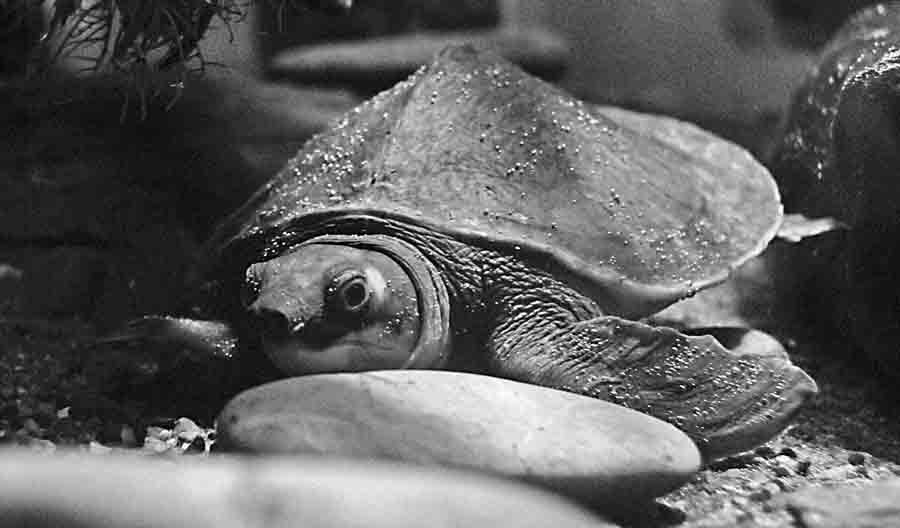Continuing our series on the region’s rarest weird and wonderful species, a tribute to the conservation work of British author Douglas Adams, meet a jungle VIP plus a very peculiar reptile, who one conservationist believes could hold the key to evolutionary history
The missing link:
pig-nosed turtle
Unique among its freshwater brethren, the pig-nosed turtle (Carettochelys insculpta) is a rare creature indeed. As embryos, whether they become male or female is determined by the temperature of the ground in which their eggs are laid, and fully developed embryos have the extraordinary ability to delay their own hatching.
This conservation icon also occupies a unique position in the turtle family tree: it’s the sole survivor of a once widespread family called the Carettochelyidae and is today found only in Papua New Guinea and northern Australia. For how much longer is a matter of growing concern: over the past 30 years, scientists have recorded a steep decline in their numbers.
This turtle, which scientists hope might explain how turtles gradually evolved from land-lubbers into seafarers, is on the cusp of being eaten into oblivion. Demand for its meat and eggs mean it’s being hunted in ever larger numbers by indigenous people. Recent research by the University of Canberra in Australia found that villagers were harvesting more than 95% of all monitored nests.
Thus it came as no surprise when wildlife police discovered more than 2,000 ‘crammed like sardines’ into suitcases at an airport in Indonesia a few years ago. The turtles were concealed in plastic containers en route to Jakarta, a major hub for the illicit wildlife trade, many of them destined for the dinner table.
“Authorities in Indonesia have all the legal tools at hand to put an end to this trade, yet it appears that protection for the pig-nosed turtle is often on paper only,” says Chris Shepherd, deputy regional director of Traffic. “A few significant seizures have been made in Marauke recently, yet no arrests leading to convictions. Why not? The people involved know full well that what they are doing is illegal. They are criminals, robbing Indonesia and the rest of the world of our wildlife, and need to be punished. Little by little, species by species, they’re dismantling and destroying our ecosystems. Imagine losing a species like the pig-nosed turtle. What an amazing animal.”
